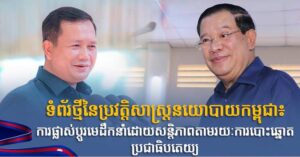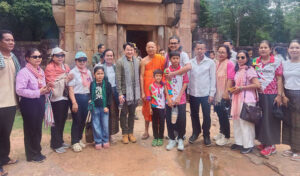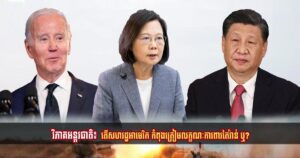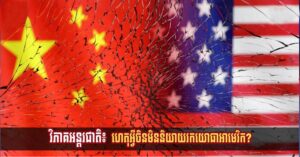Opinion: Thailand Can Lie to Its Own People, But Not to the World: The Truth About History Cannot Be Erased
 Opinion: Thailand Can Lie to Its Own People, But Not to the World: The Truth About History Cannot Be Erased
Opinion: Thailand Can Lie to Its Own People, But Not to the World: The Truth About History Cannot Be Erased
Khmer Times | Throughout history, authoritarian regimes and nationalistic governments have attempted to manipulate historical narratives for their own benefit. Thailand is no exception. Recent efforts by Thai leaders and media outlets to distort historical truths—particularly in regard to cultural origins, border disputes, and ancient civilizations—highlight a troubling pattern of rewriting history to serve a narrow political agenda. While such revisionism might fool some segments of the Thai population, it cannot deceive the world, academia, or humanity at large.
A Nation Built on Borrowed Civilizations
Thailand’s official narrative often attempts to claim sole ownership of certain cultural elements that, in truth, have their roots in a shared Southeast Asian heritage—one in which the Khmer Empire played a dominant and foundational role. From architecture and dance to religious practices and royal protocols, much of what is celebrated as “traditional Thai” is deeply influenced by the Khmer civilization.
The magnificent temples of Ayutthaya and Sukhothai, often cited as evidence of a “pure” Thai cultural lineage, bear undeniable marks of Khmer architecture. The earliest scripts used in Thailand—Old Khmer—predate any indigenous Thai scripts and were adapted by Siamese elites after contact with the Khmer court.
The world’s top scholars, historians, and archaeologists—from UNESCO to independent researchers from France, Japan, the U.S., and beyond—have documented these realities for decades. No matter how many school textbooks Thailand rewrites, no matter how many press releases it issues, history leaves behind physical proof, academic consensus, and international recognition.
Border Disputes and National Amnesia
Thailand’s border disputes with Cambodia—most notably around Preah Vihear—reveal another example of historical denialism and using the unilateral map-illegal map. The 1962 International Court of Justice (ICJ) ruling clearly awarded the temple to Cambodia, yet Thailand continues to provoke and distort the matter, inciting nationalist fervor at home while ignoring international law.
Such actions may whip up support from uninformed citizens, but they do not pass the scrutiny of global legal institutions, diplomats, or historians. When a country chooses denial over diplomacy and fiction over fact, it isolates itself from the community of nations built on truth, justice, and mutual respect.
Media Manipulation as a Tool of Control
The Thai media—especially under military or royalist influence—has become a tool for promoting state-approved myths. From the downplaying of shared cultural roots to the fabrication of historical enmities, Thai outlets often portray neighboring countries like Cambodia in a demeaning light, as if history began only when Siam declared itself a kingdom.
But such attempts at media control cannot outpace the digital age. Information flows across borders; truth travels faster than lies. Thai youth, scholars abroad, and neighboring nations are more informed than ever. The internet, academic collaboration, and regional integration ensure that historical truth cannot be hidden behind state propaganda.
The World Is Watching Thailand
Thailand can lie to its own people—but it cannot lie to the world. Every attempt to erase the influence of the Khmer Empire, to rebrand cultural heritage as exclusively Thai, or to deny well-documented history is an insult to the intelligence of the global community.
UNESCO, ICJ, international scholars, and even regional allies are not blind. The global community values truth, transparency, and cultural honesty. When a country chooses pride over fact, and arrogance over cooperation, it risks its credibility in the eyes of the world.
Thailand’s identity is not weakened by acknowledging its complex, multicultural past—in fact, it would be strengthened by doing so.
But until that day comes, the burden of truth will be carried by historians, neighboring countries like Cambodia, and the international community who refuse to accept historical lies as truth.
In the end, history speaks for itself. Stones, ruins, manuscripts, and memory remain long after propaganda fades.
Roth Santepheap is a geopolitical analyst based in Phnom Penh. The views expressed are his own.






